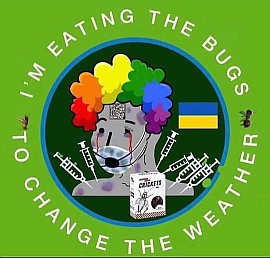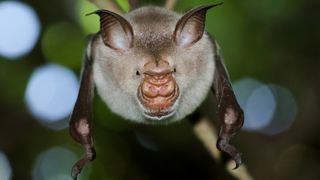There’s More Bad News on the Long-Term Effects of the Coronavirus
Page 1 of 1
 There’s More Bad News on the Long-Term Effects of the Coronavirus
There’s More Bad News on the Long-Term Effects of the Coronavirus
ncertainty has been the trademark of both the economic and public health crises caused by the coronavirus. Occasionally that’s not a bad thing — like in the emerging consensus that the initial models for case fatality rates and ICU beds needed were too high. But over the last few days, several new reports on the nature of the coronavirus showed how much more we need to learn about the virus before the effects of reopening the country can be fully anticipated. Below are four such alarming studies — though approach with some caution, as the clinical understanding of the outbreak continues to change as testing expands.
Ostalo na...
https://nymag.com/intelligencer/2020/04/more-bad-news-on-the-long-term-effects-of-the-coronavirus.html?utm_referrer=https%3A%2F%2Fzen.yandex.com&utm_campaign=dbr
Scientists report a case of a body infecting a live patient
Let’s begin with the most morbid detail: Thailand is now reporting the first fatal case of coronavirus that was transmitted from a deceased patient to a medical examiner. “Not just the medical examiners, but morgue technicians and the people in funeral homes need to take extra care,” Angelique Corthals, a professor of pathology at CUNY’s John Jay College of Criminal Justice, told BuzzFeed News. With the high daily death count pushing the capacity of morgues in cities across the country, the concern that bodies could transmit the virus is especially alarming, considering pictures from Sinai-Grace Hospital in Detroit showing bodies piled in vacant spaces in the facility.Ostalo na...
https://nymag.com/intelligencer/2020/04/more-bad-news-on-the-long-term-effects-of-the-coronavirus.html?utm_referrer=https%3A%2F%2Fzen.yandex.com&utm_campaign=dbr

Guest- Guest
 Re: There’s More Bad News on the Long-Term Effects of the Coronavirus
Re: There’s More Bad News on the Long-Term Effects of the Coronavirus
nevjerovatno..niti jedan komentar..no nije niti cuditi..autisti i ignoranti rulaju forumom,no zna se kmecati radi viruza..
Bitno da onog seronju Mesica gonjaju svabi..eeeee,to je od krucijalnog znacenja..netko rece..kilo mozga..nema toga ni deke..
Bitno da onog seronju Mesica gonjaju svabi..eeeee,to je od krucijalnog znacenja..netko rece..kilo mozga..nema toga ni deke..


Guest- Guest

red wolf-

Posts : 15947
2016-02-10
Lokacija: : Svemir
 Re: There’s More Bad News on the Long-Term Effects of the Coronavirus
Re: There’s More Bad News on the Long-Term Effects of the Coronavirus
Da nije ovaj u mrtvačnici bio nekrofil pa tako pobrao zarazu?
_________________


catabbath-

Posts : 12437
2015-08-22
 Re: There’s More Bad News on the Long-Term Effects of the Coronavirus
Re: There’s More Bad News on the Long-Term Effects of the Coronavirus
manipuliranje mrtvima, je sastavni dio zbrinjavanja istih,a tu se moze popusiti debelo zaraza..prije zbrinjavanja,ide autopsija,jel..ima tu puno josh radnji tijekom autopsije..catabbath wrote:Da nije ovaj u mrtvačnici bio nekrofil pa tako pobrao zarazu?

Guest- Guest
 Re: There’s More Bad News on the Long-Term Effects of the Coronavirus
Re: There’s More Bad News on the Long-Term Effects of the Coronavirus
6 new coronaviruses discovered in bats
By Jeanna Bryner - Live Science Editor-in-Chief 4 days ago
Comments (2)

(Image: :copyright: Geza Farkas/Shutterstock)
Scientists have discovered six entirely new coronaviruses lurking in bats in Myanmar.
These viruses are in the same family as the SARS-CoV-2 virus that is currently spreading across the globe; but the researchers said the newbies aren't closely related genetically to SARS-CoV-2 or to the two other coronaviruses that cause severe infections in humans — severe acute respiratory syndrome (SARS), which caused the 2002-2003 pandemic, and Middle East respiratory syndrome (MERS).
The researchers discovered the viruses while surveying bats in Myanmar as part of a government-funded program called PREDICT to identify infectious diseases that have the potential to hop from animals to humans. And bats are prime suspects, as the mammals are thought to host thousands of yet-to-be-discovered coronaviruses. SARS-CoV-2, which causes the disease COVID-19, is also thought to have originated in bats before taking up residence in humans, possibly taking a detour through some intermediary host first.
Related: 13 coronavirus myths busted by science
Between 2016 and 2018, they collected hundreds of samples of saliva and guano (or bat poop) from 464 bats from at least 11 different species; they sampled at three locations in Myanmar where humans come into close contact with wildlife due to land use changes and recreational and cultural activities — such as guano harvesting for fertilizer.
"Two of these sites also featured popular cave systems where people were routinely exposed to bats through guano harvesting, religious practices and ecotourism," the researchers wrote in their study published online April 9 in the journal PLOS ONE.
The researchers analyzed genetic sequences from these samples and compared them with genomes of known coronaviruses. The new viruses were found in three bat species: the Greater Asiatic yellow house bat (Scotophilus heathii), where PREDICT-CoV-90 was found; the wrinkle-lipped free-tailed bat (Chaerephon plicatus), which was host to PREDICT-CoV-47 and -82; and Horsfield's leaf-nosed bat (Hipposideros larvatus), which carried PREDICT-CoV-92, -93 and -96.
Further research is needed to understand the potential for these six newfound viruses to move to other species and how they might impact human health, the researchers said.
"Many coronaviruses may not pose a risk to people, but when we identify these diseases early on in animals, at the source, we have a valuable opportunity to investigate the potential threat," study co-author Suzan Murray, director of the Smithsonian's Global Health Program, said in a statement. "Vigilant surveillance, research and education are the best tools we have to prevent pandemics before they occur."
Contact between humans and wildlife is only becoming more prevalent, they noted, adding that the current devastation caused by COVID-19 is just one reminder of how closely human health is linked to such interactions.
"Worldwide, humans are interacting with wildlife with increasing frequency, so the more we understand about these viruses in animals — what allows them to mutate and how they spread to other species –– the better we can reduce their pandemic potential," lead study author Marc Valitutto, former wildlife veterinarian with the Smithsonian's Global Health Program, said in the statement.
https://www.livescience.com/6-new-coronaviruses-found-bats.html
By Jeanna Bryner - Live Science Editor-in-Chief 4 days ago
Comments (2)

(Image: :copyright: Geza Farkas/Shutterstock)
Scientists have discovered six entirely new coronaviruses lurking in bats in Myanmar.
These viruses are in the same family as the SARS-CoV-2 virus that is currently spreading across the globe; but the researchers said the newbies aren't closely related genetically to SARS-CoV-2 or to the two other coronaviruses that cause severe infections in humans — severe acute respiratory syndrome (SARS), which caused the 2002-2003 pandemic, and Middle East respiratory syndrome (MERS).
The researchers discovered the viruses while surveying bats in Myanmar as part of a government-funded program called PREDICT to identify infectious diseases that have the potential to hop from animals to humans. And bats are prime suspects, as the mammals are thought to host thousands of yet-to-be-discovered coronaviruses. SARS-CoV-2, which causes the disease COVID-19, is also thought to have originated in bats before taking up residence in humans, possibly taking a detour through some intermediary host first.
Related: 13 coronavirus myths busted by science
Between 2016 and 2018, they collected hundreds of samples of saliva and guano (or bat poop) from 464 bats from at least 11 different species; they sampled at three locations in Myanmar where humans come into close contact with wildlife due to land use changes and recreational and cultural activities — such as guano harvesting for fertilizer.
"Two of these sites also featured popular cave systems where people were routinely exposed to bats through guano harvesting, religious practices and ecotourism," the researchers wrote in their study published online April 9 in the journal PLOS ONE.
The researchers analyzed genetic sequences from these samples and compared them with genomes of known coronaviruses. The new viruses were found in three bat species: the Greater Asiatic yellow house bat (Scotophilus heathii), where PREDICT-CoV-90 was found; the wrinkle-lipped free-tailed bat (Chaerephon plicatus), which was host to PREDICT-CoV-47 and -82; and Horsfield's leaf-nosed bat (Hipposideros larvatus), which carried PREDICT-CoV-92, -93 and -96.
Further research is needed to understand the potential for these six newfound viruses to move to other species and how they might impact human health, the researchers said.
"Many coronaviruses may not pose a risk to people, but when we identify these diseases early on in animals, at the source, we have a valuable opportunity to investigate the potential threat," study co-author Suzan Murray, director of the Smithsonian's Global Health Program, said in a statement. "Vigilant surveillance, research and education are the best tools we have to prevent pandemics before they occur."
Contact between humans and wildlife is only becoming more prevalent, they noted, adding that the current devastation caused by COVID-19 is just one reminder of how closely human health is linked to such interactions.
"Worldwide, humans are interacting with wildlife with increasing frequency, so the more we understand about these viruses in animals — what allows them to mutate and how they spread to other species –– the better we can reduce their pandemic potential," lead study author Marc Valitutto, former wildlife veterinarian with the Smithsonian's Global Health Program, said in the statement.
https://www.livescience.com/6-new-coronaviruses-found-bats.html

Guest- Guest
 Re: There’s More Bad News on the Long-Term Effects of the Coronavirus
Re: There’s More Bad News on the Long-Term Effects of the Coronavirus
O čem se radi?Legendovich wrote:nevjerovatno..niti jedan komentar..no nije niti cuditi..autisti i ignoranti rulaju forumom,no zna se kmecati radi viruza..
Bitno da onog seronju Mesica gonjaju svabi..eeeee,to je od krucijalnog znacenja..netko rece..kilo mozga..nema toga ni deke..
U kratkim crtamin?

jastreb- Posts : 34059
2014-04-22
 Re: There’s More Bad News on the Long-Term Effects of the Coronavirus
Re: There’s More Bad News on the Long-Term Effects of the Coronavirus
jastreb wrote:O čem se radi?Legendovich wrote:nevjerovatno..niti jedan komentar..no nije niti cuditi..autisti i ignoranti rulaju forumom,no zna se kmecati radi viruza..
Bitno da onog seronju Mesica gonjaju svabi..eeeee,to je od krucijalnog znacenja..netko rece..kilo mozga..nema toga ni deke..
U kratkim crtamin?
dvi vrlo vazne stvari...
Da Korona virus ima sposobnost "zarobiti" T-Limfocite,glavnu obranu tijela protiv virusa,u ovom slucaju..T-Limfocit ima sposobnost lociranja i targetiranja virusa,potom odvaja stanicu zarazenu virusom,probija joj stanicnu membranu i ubija i stanicu i virus..
Korona pak ima sposobnost lucenja,neke tvari,enzima,koji "zarobi" t-Limfocit i onemoguci ga u djelovanju zastite tjela..
Nesto slicno je kod virusa AIDS-a...
Druga stvar,PRVI PUTA VIDJENA KOD VIRUSA jest da Korona moze nastaviti "zivjeti",odnosno biti zarazna i nadalje na mrtvom hostu..
DOSADA nije zabiljezen niti jedan virus sa tim mogucnostima..Kad krepe host,i virus se rastoci..prestaje biti virulentan..
Eto ukratko

Guest- Guest
 Similar topics
Similar topics» Coronavirus News
» Coronavirus updates: The latest news on the outbreak and the global response
» Biden's Supreme Court nominee refuses to define the term 'woman'
» Stockholm No-Go Suburb Most Affected by Coronavirus
» The Coronavirus Explained & What You Should Do
» Coronavirus updates: The latest news on the outbreak and the global response
» Biden's Supreme Court nominee refuses to define the term 'woman'
» Stockholm No-Go Suburb Most Affected by Coronavirus
» The Coronavirus Explained & What You Should Do
Page 1 of 1
Permissions in this forum:
You cannot reply to topics in this forum
 Events
Events Latest images
Latest images
 by Guest 14/4/2020, 13:29
by Guest 14/4/2020, 13:29